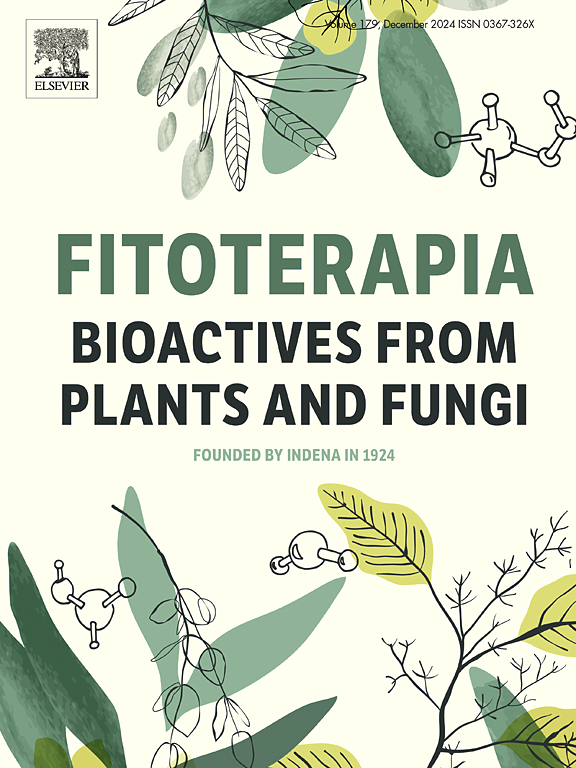Antiviral properties of the natural product eugenol: A review
IF 2.5
3区 医学
Q3 CHEMISTRY, MEDICINAL
引用次数: 0
Abstract
Natural small molecule compounds have become the alternative options for developing antiviral reagent due to their broad-spectrum antiviral properties and low toxicity. Eugenol is a natural volatile phenolic aromatic compound primarily derived from clove oil. The small compound is well-recognized for its local anesthetic, anti-inflammatory, and preservative properties, making it a common choice for oral disinfection and as an adjunctive treatment for periodontitis. Clinical and experimental evidence shows that eugenol exhibits significant inhibitory effects against a variety of pathogenic microorganisms, including bacteria, fungi, and the viruses. In viral infectious diseases, eugenol can directly interact with pathogenic antigens in viral structures to prevent viral invasion. Additionally, it offers anti-inflammatory and antioxidant benefits by inhibiting multiple inflammatory mediators, thereby reducing organ damage. To the best of our knowledge, recent advancements in the antiviral properties of eugenol have not been solely addressed. This review aims to offer a new insight into the antiviral activity of eugenol and its potential mechanisms of action. Based on the literature review, we suggest that the antiviral mechanisms of eugenol are associated with cellular autophagy, and that the nuclear factor kappa-B (NF-κB) signaling pathway is the primary inflammatory pathway regulated by eugenol. These findings highlight the need for further investigation through rigorously designed experimental studies focused on specific viruses.
天然产物丁香酚抗病毒特性研究进展
天然小分子化合物以其广谱抗病毒和低毒性的特性成为开发抗病毒试剂的替代选择。丁香酚是一种主要从丁香油中提取的天然挥发性酚类芳香化合物。这种小化合物因其局部麻醉、抗炎和防腐特性而被广泛认可,使其成为口腔消毒的常用选择,并作为牙周炎的辅助治疗。临床和实验证据表明,丁香酚对多种病原微生物,包括细菌、真菌和病毒具有显著的抑制作用。在病毒性传染病中,丁香酚可直接与病毒结构中的病原抗原相互作用,阻止病毒入侵。此外,它通过抑制多种炎症介质提供抗炎和抗氧化的好处,从而减少器官损伤。据我们所知,最近在丁香酚抗病毒特性方面的进展还没有完全解决。本文旨在为丁香酚的抗病毒活性及其可能的作用机制提供新的认识。通过文献综述,我们认为丁香酚的抗病毒机制与细胞自噬有关,核因子κ b (NF-κB)信号通路是丁香酚调节的主要炎症通路。这些发现强调需要通过针对特定病毒的严格设计的实验研究进行进一步调查。
本文章由计算机程序翻译,如有差异,请以英文原文为准。
求助全文
约1分钟内获得全文
求助全文
来源期刊

Fitoterapia
医学-药学
CiteScore
5.80
自引率
2.90%
发文量
198
审稿时长
1.5 months
期刊介绍:
Fitoterapia is a Journal dedicated to medicinal plants and to bioactive natural products of plant origin. It publishes original contributions in seven major areas:
1. Characterization of active ingredients of medicinal plants
2. Development of standardization method for bioactive plant extracts and natural products
3. Identification of bioactivity in plant extracts
4. Identification of targets and mechanism of activity of plant extracts
5. Production and genomic characterization of medicinal plants biomass
6. Chemistry and biochemistry of bioactive natural products of plant origin
7. Critical reviews of the historical, clinical and legal status of medicinal plants, and accounts on topical issues.
 求助内容:
求助内容: 应助结果提醒方式:
应助结果提醒方式:


